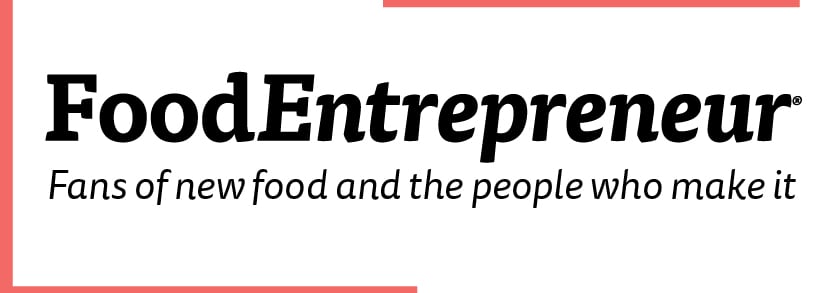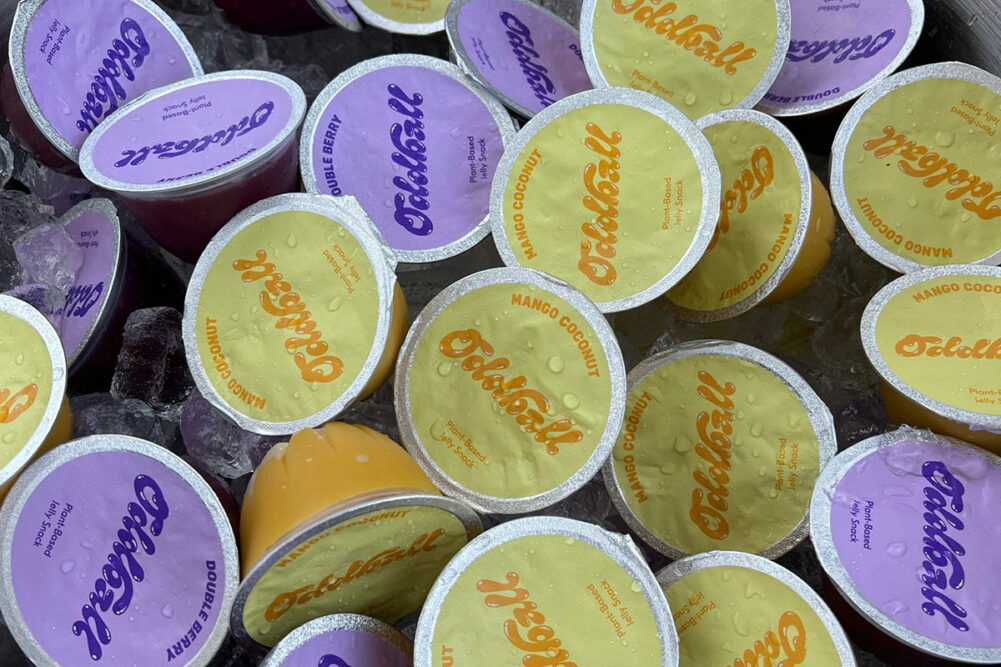 NEW YORK — A New York startup aims to shake up Jell-O, a 126-year-old brand that generated $688 million in sales last year, according to market researcher Circana.
NEW YORK — A New York startup aims to shake up Jell-O, a 126-year-old brand that generated $688 million in sales last year, according to market researcher Circana.
Oddball markets a line of plant-based jelly snacks, each formulated with a full serving of fruit and no sugar, preservatives or gelatin. The recipes contain agar, a gelling agent derived from seaweed. Flavors include pink grapefruit, double berry and mango coconut.
Sophia Cheng, founder and chief executive officer, who describes Oddball as “a superfruit jiggly snack,” partnered with a Michelin-starred chef to develop the products, which are rolling out to specialty grocers in New York this year. Prior to launching the business, Ms. Cheng, a native of Singapore and Hong Kong, was director of strategic initiatives and global transformation at The Estee Lauder Companies Inc. Previously she was an investment associate at Bridgewater Associates, and earlier in her career she was a management consultant at Kearney and a researcher and reporter at The Wall Street Journal.
“When I came to the US for college … I thought it was really strange that Jell-O was the only brand of jelly and also the category here,” she said. “In Asia, jellies are a huge industry because fruit is such a big part of our culture, and it is a more fun way to eat fruit.”
In China, jelly snacks are a $5 billion market, Ms. Cheng noted.
“I thought … ‘How has no one disrupted Jell-O, which has been using the same formula for 100 years?’” she said.
In its salad days, Jell-O, which is owned by Chicago-based Kraft Heinz Co., neared $1 billion in sales, but the brand has sustained a slippery slide in demand over the past decade. The dessert has been challenged by changing consumer tastes and increased competition. In 2012, prior to its merger with H.J. Heinz Co., Kraft Foods Group’s top executive noted during an earnings call “Jell-O must be revitalized, and we must do it in the face of yogurt’s explosive growth.”
Efforts to update the business in recent years have included the introduction of Jell-O Simply Good, a line of pudding and gelatin mixes made with no artificial flavors, dyes or preservatives, and Jell-O Play, a range of interactive kits featuring plastic molds, edible stickers and cookie cutters.
Meanwhile, challenger brands have come and gone. Bakol Natural Foods offered a gelatin-free line of ready-to-eat cups and mixes positioned as plant-based and made with natural ingredients. Simply Delish markets mixes for jelly desserts that are plant-based and contain no sugar.
Lately, Kraft Heinz executives have discussed investing prudently to not “revitalize” but “stabilize” Jell-O.
“They haven’t reinvented,” Ms. Cheng said. “They’ve tried to reinvent themselves. Always failed.”
Among the earliest tasters of Oddball were former professional football players. Ms. Cheng was invited to participate in a brand showcase at the Super Bowl last year.
“Our first consumers taste testers were all ex-NFL athletes,” she said. “That’s when I knew I had something there because they are not my target audience … but I watched people eat, like, six in a row. I watched people drag people over to try it.”
Additional sampling opportunities and pop-ups followed, further proving the concept and sparking conversations with major national retailers, Ms. Cheng said. Earlier this year, the startup tested its products at specialty shops, office spaces and a charter school in Brooklyn.
“I want to be selling them at mass, every gas station, every convenience store, every inch of the country where it’s hard to get real food, kids can get it,” Ms. Cheng said. “I don’t want to be a bougie product that just lives in Whole Foods. I want to be a mass market product that everybody can have access to at the right price point.”
The products are packaged in single-serve cups that may be merchandised in multiple areas of the grocery store, Ms. Cheng said.
“I have an idea of where this should live … the produce section, the easy dessert snack section, right by the gelatin and puddings but still near the yogurts, and the shelf-stable set near the applesauce,” she said. “I think a lot of the buyers are open to having this conversation just because we’re so new.”Enjoying this content? Learn about more disruptive startups on the Food Entrepreneur page.





